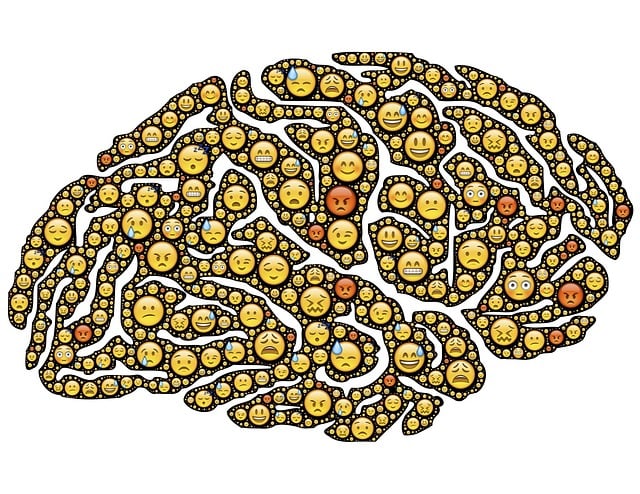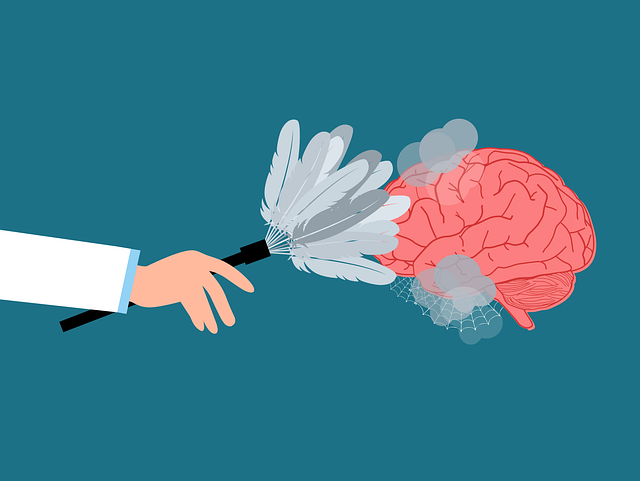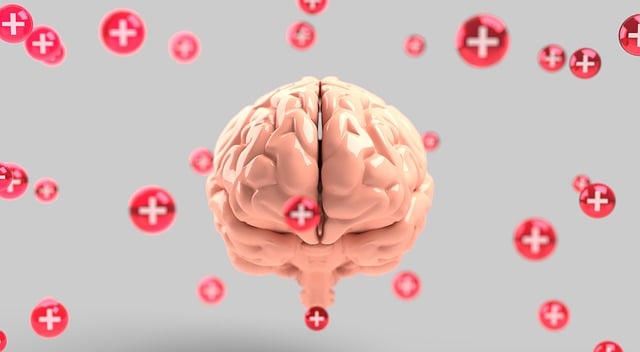Mental wellness, encompassing emotional, psychological, and social well-being, is crucial for daily functioning and relationships. Denver Alcohol Abuse Therapy offers a holistic approach to treating alcohol dependency by addressing its connection with mental health issues. They provide individual therapy, evidence-based techniques, coping skills development, and community support networks. Cultivating a healthy mindset through exercise, mindfulness, and boundary setting reduces negative thoughts and promotes resilience. Building personal strengths and adopting a growth mindset helps overcome challenges. Consistent self-care practices, social skills training, and mental health policy advocacy create an environment that fosters lasting mental wellness, with Denver Alcohol Abuse Therapy leading the way.
Mental wellness is an essential aspect of our daily lives, influencing our overall well-being and productivity. In this article, we explore various facets of mental health promotion, offering valuable insights into how individuals in Denver can thrive. From understanding the impact of mental wellness on everyday life to uncovering the benefits of Denver Alcohol Abuse Therapy, these strategies empower readers to cultivate a healthy mindset and build resilience. Discover practical tips for self-care and coping mechanisms to foster long-lasting mental wellbeing.
- Understanding Mental Wellness and Its Impact on Daily Life
- The Role of Denver Alcohol Abuse Therapy in Promoting Mental Health
- Strategies for Cultivating a Healthy Mindset
- Building Resilient Coping Mechanisms: Tips for Overcoming Challenges
- Integrating Self-Care Practices for Long-Lasting Wellbeing
Understanding Mental Wellness and Its Impact on Daily Life

Mental wellness refers to our emotional, psychological, and social well-being. It impacts how we think, feel, and act in daily life, affecting our ability to cope with stress, make choices, and relate to others. Understanding mental wellness is crucial as it plays a significant role in overall health and quality of life. When individuals struggle with mental wellness, it can manifest as various conditions such as anxiety, depression, or substance abuse disorders, including alcohol abuse. Denver Alcohol Abuse Therapy centers focus on addressing these issues holistically, considering the interconnectedness between mental health and addiction.
The impact of poor mental wellness extends beyond an individual’s mindset. It influences their behavior, relationships, and ability to function in daily tasks. For instance, difficulty with emotional regulation can lead to impulsive decisions or heightened reactivity to stressors, while a lack of inner strength development might make individuals feel overwhelmed by challenges. Mental Illness Stigma Reduction Efforts are essential in creating supportive environments that encourage seeking help and promote understanding, fostering recovery and improved quality of life for those facing mental health challenges.
The Role of Denver Alcohol Abuse Therapy in Promoting Mental Health

Denver Alcohol Abuse Therapy plays a pivotal role in promoting mental wellness by addressing the deep-rooted connection between substance abuse and mental health issues. Many individuals struggling with alcohol dependency also face co-occurring mental health disorders, such as anxiety, depression, or bipolar disorder. The therapy offers a safe and supportive environment where clients can explore these complex issues holistically. By combining evidence-based therapeutic techniques with personalized coping skills development, Denver Alcohol Abuse Therapy helps individuals regain control of their lives and foster resilience.
Beyond individual therapy, the organization also emphasizes the importance of Mental Wellness Coaching Programs and community support networks. Through group sessions and aftercare programs, clients gain valuable peer support and learn effective strategies for maintaining mental balance long-term. Moreover, their expertise in Mental Health Policy Analysis and Advocacy ensures that individuals have access to comprehensive resources and services, contributing to a more supportive and inclusive environment for those seeking recovery and improved mental wellness.
Strategies for Cultivating a Healthy Mindset

Cultivating a healthy mindset is an essential aspect of mental wellness promotion. In Denver Alcohol Abuse Therapy sessions, clients often explore strategies to build inner strength and resilience. Encouraging a consistent self-care routine development for better mental health is a powerful tool. This can include regular exercise, mindfulness practices, and setting personal boundaries to maintain emotional balance. By embracing mind over matter principles, individuals can learn to reframe negative thoughts and cultivate a more positive outlook.
These strategies empower people to navigate life’s challenges with greater equanimity. Developing inner strength allows for better coping mechanisms, reducing the risk of relapse in alcohol abuse cases. Incorporating self-care into daily routines helps maintain mental wellness, fostering a sense of calm and clarity. Through Denver Alcohol Abuse Therapy, individuals can discover their unique path to cultivating a healthy mindset and enhancing overall well-being.
Building Resilient Coping Mechanisms: Tips for Overcoming Challenges

Building resilient coping mechanisms is a vital skill to overcome challenges and maintain mental wellness. It involves recognizing personal strengths and learning effective strategies to navigate stressful situations. One powerful approach is adopting a growth mindset, where setbacks are seen as opportunities for learning and development, fostering resilience in the face of adversity. This can be cultivated through self-reflection practices, such as journaling, which helps individuals process emotions and gain insights into their triggers.
Additionally, seeking professional support like Denver Alcohol Abuse Therapy can provide valuable tools and guidance. Therapists assist clients in identifying unhealthy coping mechanisms and replacing them with adaptive strategies. They also offer risk assessments for mental health professionals to ensure a safe environment for vulnerable individuals. Community outreach program implementation is another effective method, as it promotes mental wellness on a larger scale by providing resources and education to diverse communities, boosting confidence in one’s ability to manage stress and overcome challenges.
Integrating Self-Care Practices for Long-Lasting Wellbeing

In the pursuit of long-lasting mental wellness, integrating consistent self-care practices is paramount. Denver Alcohol Abuse Therapy centers often emphasize this holistic approach, recognizing that addressing underlying issues and fostering healthy coping mechanisms are key to sustained recovery. Self-care isn’t just about occasional indulgences; it’s a daily practice that includes physical activities like regular exercise or mindfulness routines such as meditation. These practices not only help manage stress but also enhance overall well-being, making individuals more resilient in navigating life’s challenges.
Social Skills Training and Mental Health Policy Analysis and Advocacy play complementary roles in this context. While the former equips individuals with effective communication and interpersonal skills to build supportive relationships, the latter drives systemic changes that promote mental health awareness and access to resources like Denver Alcohol Abuse Therapy services. By combining personal growth through self-care with broader societal support, we can create an environment conducive to thriving mental wellness for all.
Mental wellness is a cornerstone of overall health and happiness. By understanding its impact on daily life, leveraging strategies for cultivating a healthy mindset, building resilient coping mechanisms, and integrating self-care practices, individuals can significantly enhance their mental wellbeing. In Denver, services like Denver Alcohol Abuse Therapy play a crucial role in promoting mental health by offering specialized support tailored to address specific challenges. Embracing these practices and seeking professional help when needed can foster long-lasting resilience and improve quality of life.














